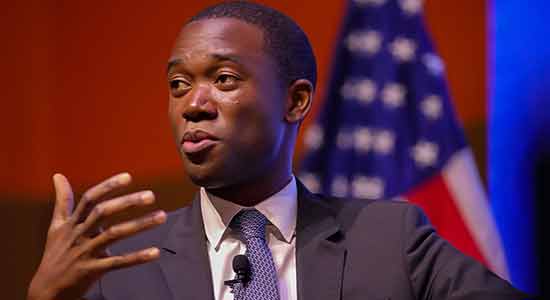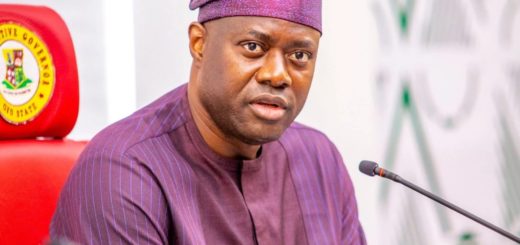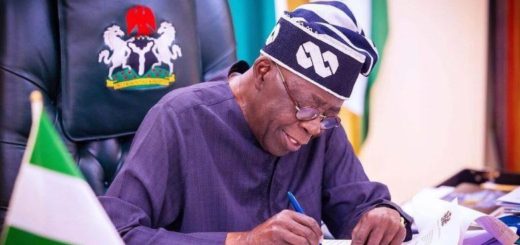U.S. Deputy Treasury Secretary Calls For Transparency And Anti-Corruption Measures In Nigeria To Attract Investment

Wally Adeyemo, U.S. deputy treasury secretary, said that a stable naira, sound fiscal policies, ending corruption and ensuring transparency are needed to attract investment and spur growth in Africa’s largest economy.
Adeyemo made the remarks on Monday during a visit to Nigeria where he met with officials and business leaders to discuss ways to strengthen economic ties between the two countries.
“The United States is looking forward to collaborating with Nigeria as it develops an economy that benefits all Nigerians, and foreign direct investment (FDI) will flow into the country when its macroeconomic policies are fully implemented,” Adeyemo said while addressing the audience at the Lagos Business School.
Adeyemo noted that progress in expanding economic opportunities in Africa’s most populous nation has been slower than expected.
In fostering partnership with the US, he noted four things, Nigeria needs a stable naira, sound fiscal policies, root out corruption in the business environment and protect the integrity of Nigeria’s financial system.
“The United States stands ready to assist Nigeria,” he said. “However, Nigeria needs to reform its economy, put in place a credible economic framework and root out corruption and people should know how the government is using the resources of the state.”
“Nigeria’s progress is not only beneficial to Nigerians but also to the United States. The decisive actions of your government and the shared determination of the Nigerian people can create the change needed to unleash the untapped potential of Africa’s most populous nation,” Adeyemo said.
Nigeria has faced several economic challenges in recent years, including a weak currency, rising prices, and widespread corruption. These challenges have made it difficult for businesses to operate and invest in the country.
President Bola Tinubu has implemented two major economic reforms: the removal of the petrol subsidy and the unification of the foreign exchange markets. These reforms are aimed at improving Nigeria’s struggling economic growth.
Adeyemo said: “The government needs to articulate and implement sound fiscal policies that will provide the resources needed to make critical investments. I reckon that the removal of fuel subsidy was a difficult decision for the Nigerian government, but it was an important early step in creating the resources needed to invest in fiscal, digital infrastructure, and the small business environment.
“Unifying Nigeria’s foreign exchange rates will create the kind of macroeconomic stability that is essential to attracting foreign investment. We commend the difficult steps your government has already taken to accomplish this goal. The path to unification is not easy, but going backwards would be even worse.”
According to him, Nigeria needs a stable exchange rate as it seeks to reform the economy and bring succour to its people as well as the over one million small businesses.
“This new government also has the ability to fight skepticism by making reforms that will allow the Nigerian people to better understand how federal, state, and local resources are being used,” Adeyemo added.
Adeyemo said that President Joe Biden believes that closer ties between the US and Nigeria would be beneficial for both countries.
He said the current administration’s reforms were not happening as quickly as they could be and that investment opportunities had not always been abundant.
Nigeria is America’s second largest trading partner in Africa, according to Adeyemo.
“Overall, President Biden and the Biden administration believe deeply in the importance of deepening the relationship with Nigeria because it is in America’s interest as much as in the interest of Nigeria,” he said.













